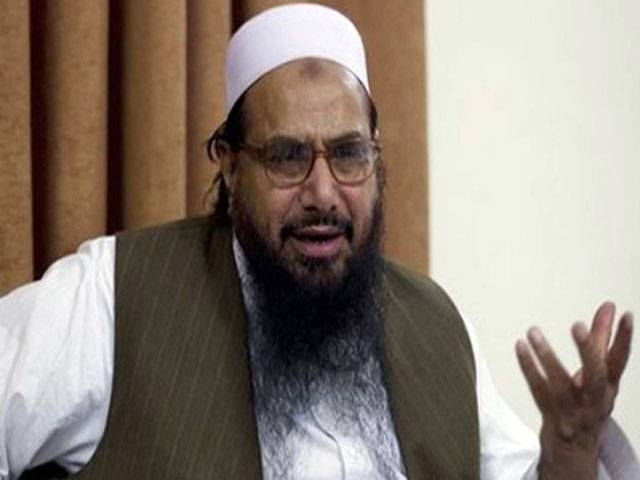Lahore - An anti-terrorism court yesterday indicted Jamaatud Dawa (JuD) chief Hafiz Saeed and four other leaders of the proscribed organisation in a case of alleged terror financing in which they were booked on July 3, 2018.
The JuD leaders were presented before ATC-I judge Malik Arshad Bhutta amidst tight security arrangements. During proceedings, Saeed’s lawyer advanced arguments against the indictment.
Earlier, the indictment was scheduled for last Saturday. However, it was delayed until yesterday due to unavailability of one of the accused in the case registered by the Counterterrorism Department (CTD) on terror financing charges.
The anti-terrorism court summoned the prosecution’s witnesses after filing charges, and adjourned the proceedings until today.
The JuD leaders denied the allegations against them as being baseless and a result of international pressure on the government. They claimed that they had been charged in cases by wrongly attributing them as leaders of the defunct organisation Lashkar-e-Taiba (LeT).
Court summons prosecution witnesses
They pleaded not-guilty saying that the CTD registered cases against them without any substantive evidence. They said it was an admitted fact supported by superior courts’ judgements that they had already parted ways with the defunct organisation before it was proscribed in 2002. They were of the view that the cases were filed against them on basis of a link to defunct Al-Anfaal Trust. They claimed that the said trust was made to construct mosques across the country.
On July 3 last year, the JuD leaders were booked in nearly two dozen cases in connection with terror financing and money laundering under the Anti-Terrorism Act (ATA), 1997.
The suspects are accused of financing terrorism out of the funds they collected through non-profit organisations and trusts namely Al-Anfaal Trust, Muaz Bin Jabal Trust, Dawatul Irshad Trust etc. The CTD registered the cases against the accused in five cities of Punjab province.
After registration of the FIRs, Hafiz Saeed was arrested on July 17 from Gujranwala by the CTD.
The action was taken after the Financial Action Task Force (FATF) warned Pakistan to deliver on its commitments to quell terror financing and money laundering in the country.
Again in October, the FATF asked Pakistan to take “extra measures” for “complete” elimination of terror financing and money laundering from the country though it had acknowledged that Pakistan had made significant improvements.
Pakistan remained on the grey list from 2012 to 2015 and was put on the list again on June 29, 2018. Pakistan was then warned that in case of failure to implement 27-point action plan in 15 months, it would be added to the blacklist. Blacklist is a list of the names branded as uncooperative and tax havens for terror financing.






